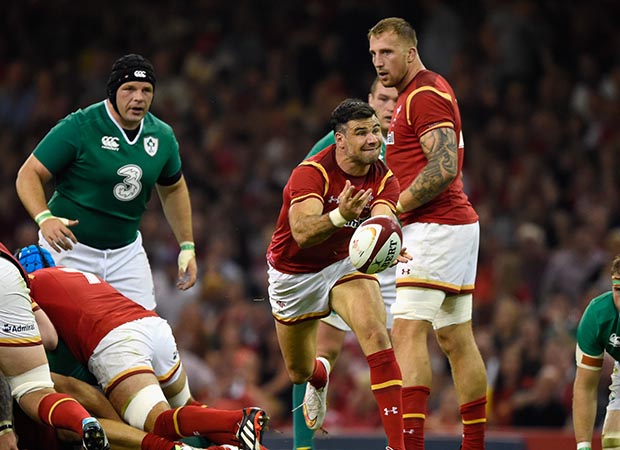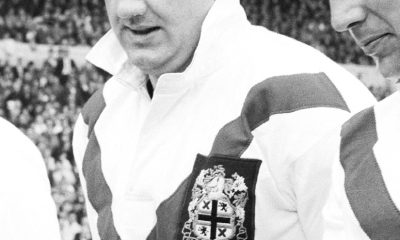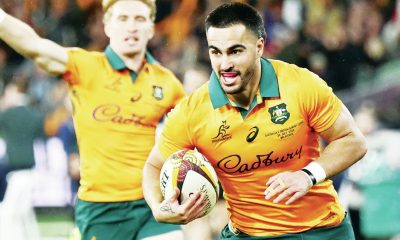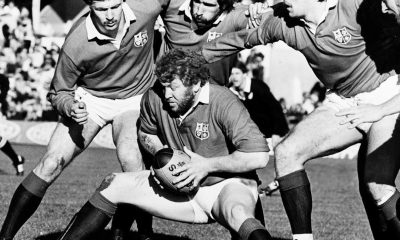
 Gareth Davies changed the course of history in Rome on Super Saturday, albeit not in the way he would have wanted – a dropped pass rather than a single act of gallantry.
Gareth Davies changed the course of history in Rome on Super Saturday, albeit not in the way he would have wanted – a dropped pass rather than a single act of gallantry.
It could be argued that his fumble cost Wales a converted try at one end followed very soon afterwards by a try at the other, a 14-point swing which allowed Ireland to make up the leeway at Murrayfield that afternoon before England almost overtook them at Twickenham that evening.
The effect of that knock-on keeps, well, knocking-on. Five months later, Davies’ fight for the right to do himself full justice as a Test scrum-half has prompted the Welsh management to drop the most decorated of their four specialist contenders.
Our verdict on Mike Phillips after last week’s shambles against Ireland, that he would be lucky to make one last World Cup, has come to pass. His removal clears the way for the newest of his Scarlet successors to make the final 31 for the World Cup.
While Davies joins Lloyd Williams in disputing who gets the nod as first alternative to undisputed No.1, Rhys Webb. Phillips has found, as Adam Jones did earlier in the year, that time and tide waits for no man.
That the ex-Wales scrum-half should find himself marooned one short of a century of Test appearances is not a hard-luck story but a worthy tribute to a career studded with Grand Slams, Lions’ tours and the nearest of near misses in a World Cup semi-final. Just as that cannot be disputed, neither can it be denied that Phillips had been on borrowed time since Webb superseded him during the autumn series last year. That time had virtually run out by the end of the Six Nations.
Having restricted Phillips to the grand total of 26 minutes off the bench in the first four matches, Wales then dropped him from the squad for the Roman finale, promoting the younger Davies in his place. Last week’s confirmation of Phillips’ waning power left Warren Gatland with only one decision to make.
A sentimentalist would have been tempted to take Phillips to one last World Cup for old time’s sake. Gatland hasn’t got where he is through sentiment and while his loyalty to the player cannot be questioned, that can only last so long.
To have kept Phillips on, little more than blind faith would have meant sacrificing Davies and, worse still, sacrificing a player without giving him a shot during the summer trials. The three who did suffer that fate – Rhys Patchell, Jack Dixon and Rory Thornton – were never going to make the final cut simply because for them this is one World Cup too soon.
Patchell can consider himself a trifle unlucky, a victim in some sense of limited fly-half opportunities at the Blues following Gatland’s rush to parachute Gareth Anscombe in from New Zealand on a dual contract.
The Kiwi, therefore, sails into the World Cup squad on the strength of half an hour in a lost cause. They were always going to give him the nod over James Hook, despite coach Rob Howley’s claim that Hook and Wales were at last on the same wavelength.
Had he not become a ‘north-south’ player? Indeed he had, meaning more direction to his game and less lateral crabbing. Sadly, the new north-south Hook has gone west, back to Gloucester to be welcomed alongside demoted hooker Richard Hibbard with open arms for the delayed Aviva Premiership start.
Anyone interpreting the dropping of a trio of non-Welsh-based players as a belated sign of ‘Gatland’s Law’ at work ought to be disabused of the notion. The newest addition to the pack, Ross Moriarty, plays for Gloucester. The next new cap, Tomas Francis, plays for Exeter. Four more from outside Wales will, fitness permitting, be lining up at Twickenham against England on September 26 – Leigh Halfpenny, George North, Jamie Roberts and Luke Charteris.
Whether Davies is among the final 23 as back-up scrum-half remains to be seen. When the Welsh-speaking Scarlet gets his shot at redemption, presumably off the bench against Ireland in Dublin on August 29, he will do so within reach of making the final 31 to be named two days later.
After Rome, nobody will be more highly motivated…
































You must be logged in to post a comment Login